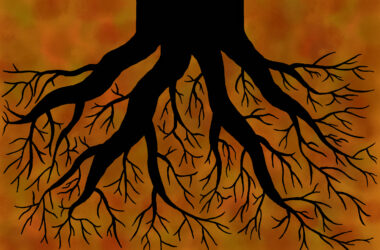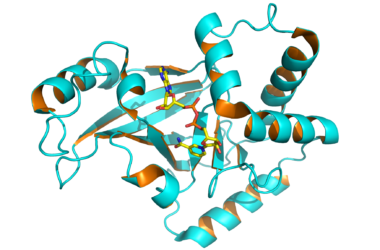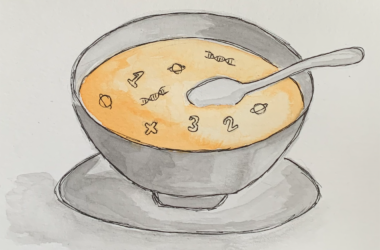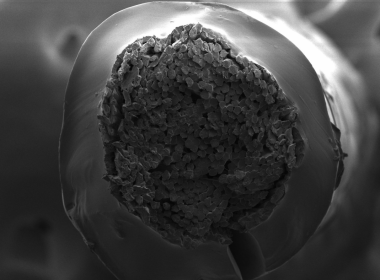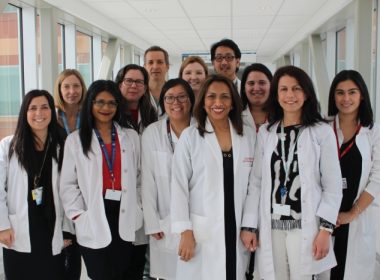Plant roots may be out of sight, but they are not out of mind for McGill researchers. While it is known that fine roots—those less than two mm in diametre—possess highly variable physiological and morphological properties, the reasons behind this variation remain unknown. Caroline Dallstream, a PhD student in McGill’s[Read More…]
Tag: McGill research
How exoenzymes changed the fate of organic matter
The very first life on Earth appeared 3.8 billion years ago as individual cells called heterotrophs, which were dependent on external food sources. Over the years, these simple heterotrophic cells underwent countless evolutionary changes, transforming into the planet’s diverse range of present-day animals. Despite the critical importance of evolution for[Read More…]
McGill experts discuss cell biology at 36th Soup and Science event
McGill’s Faculty of Science organized the 36th edition of Soup and Science from Sept. 25 to 29 in the Redpath Museum. The event offered the McGill community and beyond the opportunity to discover research from multiple fields, such as geography, physics, and computer science, in a relaxed and interactive environment.[Read More…]
34th edition of Soup and Science delivers lots of science, but no soup
The 34th edition of Soup and Science, an event for prospective undergraduate researchers and curious students organized by McGill’s Faculty of Science, made such a comeback that the in-person registration was full. During the week of Sept. 19, The McGill Tribune attended two fascinating talks about the medical uses of[Read More…]
Excavating Earth’s history through ancient rock formations
Scaling mountainous terrain or keeping an eye out for grizzly bears and moose while wading through the flowing rivers of the Yukon may not seem typical of academic work. But these were only some of the many challenging conditions McGill researchers endured while conducting a recent study looking at oxygen[Read More…]
Neuroinflammation found to drive Alzheimer’s disease progression
Over a century ago, Alois Alzheimer, a German psychiatrist, spotted strange plaques and tangles in the brain slides of a patient with dementia. Ever since, scientists have been trying to better understand the mechanisms behind what is now known as Alzheimer’s disease. Alzheimer’s disease (AD) is a brain disorder that[Read More…]
From benchtop to bedside: How tendon-inspired sutures can help heal wounds
Sutures, the threads designed to close wounds and promote healing, have been used for thousands of years, having originated in ancient Egypt. Since their invention, physicians and scientists have experimented with a wide array of materials, from hemp and cotton to more modern synthetic fibres. New techniques have been developed[Read More…]
McGill develops new screening method for Canada’s deadliest women’s cancer
Just hearing the “C” word is enough to send chills down anyone’s spine—and with cancer warnings splashed across everything from cigarette packages to coffee cups, it’s difficult to avoid. In 2017, the Canadian Cancer Society amassed over $80 million in donations. According to their 2017 report, 206,200 Canadians are expected[Read More…]
Reducing chemical waste through sustainable ketone-making
Pharmaceuticals, agrochemicals, and plastics all owe their existence to chemical synthesis. Ketones, a functional group with a central carbon double-bonded to an oxygen, are an important ingredient in a wide range of useful chemicals. Unfortunately, their synthesis is energy-intensive and requires many steps, creating significant chemical waste. Bruce Arndtsen, a[Read More…]
Learning a second language may benefit children with autism
For many, fluency in more than one language would be considered an obvious asset. Yet, the concept of a “bilingual advantage” is still widely debated, particularly for children with Autism Spectrum Disorder (ASD). Often, parents are advised to raise children with ASD monolingually to avoid compounding potential language delays resulting[Read More…]
